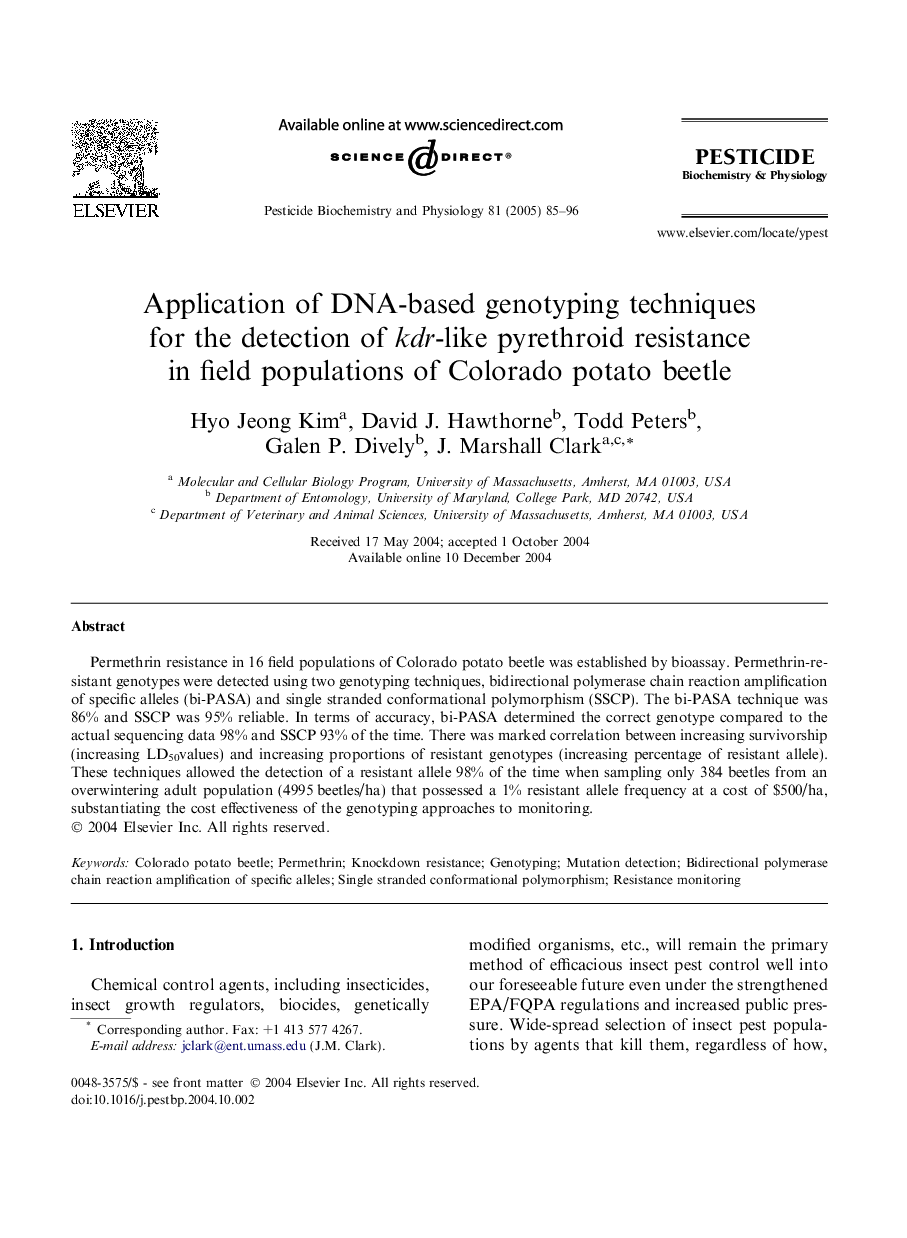| Article ID | Journal | Published Year | Pages | File Type |
|---|---|---|---|---|
| 10837491 | Pesticide Biochemistry and Physiology | 2005 | 12 Pages |
Abstract
Permethrin resistance in 16 field populations of Colorado potato beetle was established by bioassay. Permethrin-resistant genotypes were detected using two genotyping techniques, bidirectional polymerase chain reaction amplification of specific alleles (bi-PASA) and single stranded conformational polymorphism (SSCP). The bi-PASA technique was 86% and SSCP was 95% reliable. In terms of accuracy, bi-PASA determined the correct genotype compared to the actual sequencing data 98% and SSCP 93% of the time. There was marked correlation between increasing survivorship (increasing LD50values) and increasing proportions of resistant genotypes (increasing percentage of resistant allele). These techniques allowed the detection of a resistant allele 98% of the time when sampling only 384 beetles from an overwintering adult population (4995Â beetles/ha) that possessed a 1% resistant allele frequency at a cost of $500/ha, substantiating the cost effectiveness of the genotyping approaches to monitoring.
Keywords
Related Topics
Life Sciences
Agricultural and Biological Sciences
Agronomy and Crop Science
Authors
Hyo Jeong Kim, David J. Hawthorne, Todd Peters, Galen P. Dively, J. Marshall Clark,
